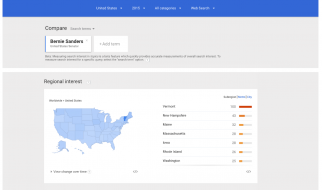Do you have plans to launch a new startup? Have you put much thought into a business plan or discussed this with your business partners? Writing a business plan is extremely important for your new start-up, as it will determine if your business will succeed in this competitive business world. Many business advisors, bankers, experienced entrepreneurs, and investors generally agree that you should develop a business plan in order to keep you on track during the first stages of development.
Preparing a business plan is like outlining an itinerary for a trip. It does not have to be overly detailed, but shouldn?t be too simplistic either. You don?t have to add a lot of cash flows statements or numbers to the business plan, but instead, you would need to have a simple orientation plan stating how it is going to be achieved, where you want to go, and the potential and market competition for your startup.
 Image Credits: unsplash
Image Credits: unsplash
A business plan is a written description of your business?s future and a document that outlines a plan for your short-term and long-term goals. You have to demonstrate a bright, objective map that you can follow step by step while developing your business. It often makes sense to begin rather basic, and then add more details as you prepare to approach investors.
Need to know how to write a business plan? Look no further! This article will explain how to outline a business plan, the important sections and a brief description of each part to help you stay organized and to guide you through the process.
Here are seven basic questions that you should include, from the most basic to the most sophisticated, before starting a new business.
1. Describe your Objectives and Mission
First and foremost, the business plan of your startup should convince you that your idea for a business is not just a dream, but can be a viable reality. Entrepreneurs are by nature positive, confident, and can-do people. So, you need to plan, set goals, and above all, know your business plan. As a matter of the fact, a mission statement should explain a company?s purpose in one compelling sentence. Consider spending twice as much time researching to determine your mission because investors want to make sure that your business is going to make them money. Below are some of the questions you need to answer in a business plan.
- What are you set to change with your invention and work?
- What makes your company?s product or service different from all the rest in the market?
- What do you need to run your business?
- Who will benefit from your business?
- What are the leverages and tradeoffs you want to give your clients, and under which implications and circumstances?
- What is the problem you are solving for your clients?
2. Market Analysis
Do you have a clear idea of the type of people who will buy your product or service? This is one of the first questions any investor will ask about your business plan. As a matter of the fact, the more you know about your competitive market, the better the results will be. Do proper research, ask experts, read industry papers, financial reports and news, so that you can have the best possible base to decide. Below are some of the things that you need to add in your market analysis task.
- Is there a viable market for the product or service you want to sell?
- Does your ideal customer live in a certain type of area?
- Are you limiting your reach geographically, demographically or in any other way?
- Will only wealthy people be able to afford it?
Once you can figure out the answers to these questions, you will have a functional market analysis, which will help you become familiar with all aspects of the market. With the target market defined, the company will be positioned to capture more market share.
3. Explain your Startups Cost
Your business plan isn?t complete without the financial forecast. Once you are done with the market analysis and objectives for your business, the next step is to explain your startup?s cost for the future goals of your company in the business plan. Have you ever asked yourself, how much capital do I need to start a company? Well, you need to be conservative while estimating startup costs because generally, everything will cost more than you expect.
The first months are the most difficult for a new company. Always include more in your forecast than your real numbers. Summarize each statement in a few easy-to-understand sentences, such as projected financial statements, including income statements, monthly cash flow, balance sheets, and annual cash flow statements in your business plan.
4. Understand the Competition
In this section of your business plan, you are required to distinguish your venture from the competition, and persuade the readers that your company will be able to compete successfully. An investigation of your direct and indirect competitors, with an assessment of their competitive advantage and how to overcome any entry barriers in your chosen market, is the best way of understanding the competition of your products and services. And you can avoid degrading price wars and preserve your company from dumping tactics with the competitors. Consider the following questions before writing about this section in the business plan.
- Who is your competition?
- Where are your main competitors?
- What is their differentiation strategy?
- How much do they charge for a similar product or service?
5. Products and Services Portfolio
This is an exciting exercise while preparing for the business plan. You need to define your products and services portfolio in order to understand the needs of your potential clients. Once you have identified them, think about the motivation your client would have to buy your offered products and services. As a matter of fact, the company?s value proposition is what distinguishes it from competitors in the business world. Expand upon your products and services, including features and benefits, competitive advantages, and if marketing a product, how and where your products will be produced.
6. Management and Operational Plans
The management and operational plans are developed to explain just how the business functions on a continuing basis. The operations plan will highlight the logistics of the organization such as the tasks assigned to each division within the company, and capital and various responsibilities of the management teams, expense requirements related to the operations of the business.
7. Marketing and Sales Channels
Once you objectively evaluate your missions, capital needs, competition, products, services, management, and operational plans, the next step is to figure out the best marketing and sales channels. One or two sheets of your business plan should encompass your marketing plan in your sales channel strategy.
But most business owners do not realize the importance of choosing the right sales channels for their offers. So it is always advisable to select the right sales channels according to your business requirements. The significant difference between choosing among resellers, distributors, and representatives can affect your operational plans. Be sure to check these regularly, so you can avoid finding out when the business is already in trouble.
Consider the following to include in your business plan, under the marketing section.
- How large will your promotional budget be?
- What type of advertisements or promotions will you use?
- Will you create a logo and use it on cards, letterhead, websites, and others?
- How often will you use paid promotions?
- What other non-paid advertisements will you use? For example, will you use social media or professional networks?
Conclusion
By now you must understand the concept of having a business plan while setting up a new business venture. No matter if the business depends on the people in charge, a well-planned business plan will assist you in ensuring that the company is achieving your goals. So, make sure you prepared a great business plan and reviewed it.

This story is published in The Startup, Medium?s largest entrepreneurship publication followed by +369,518 people.
Subscribe to receive our top stories here.



